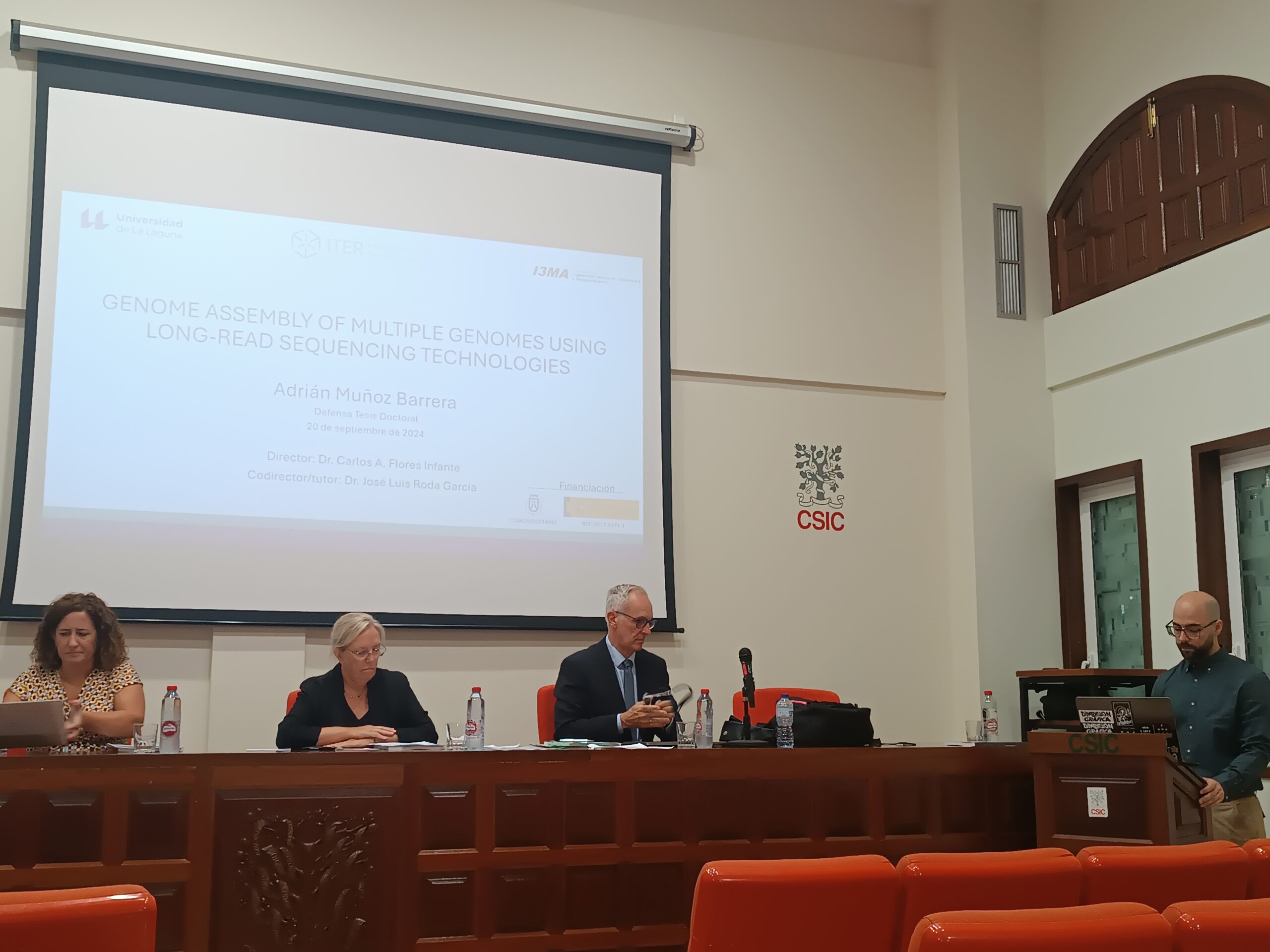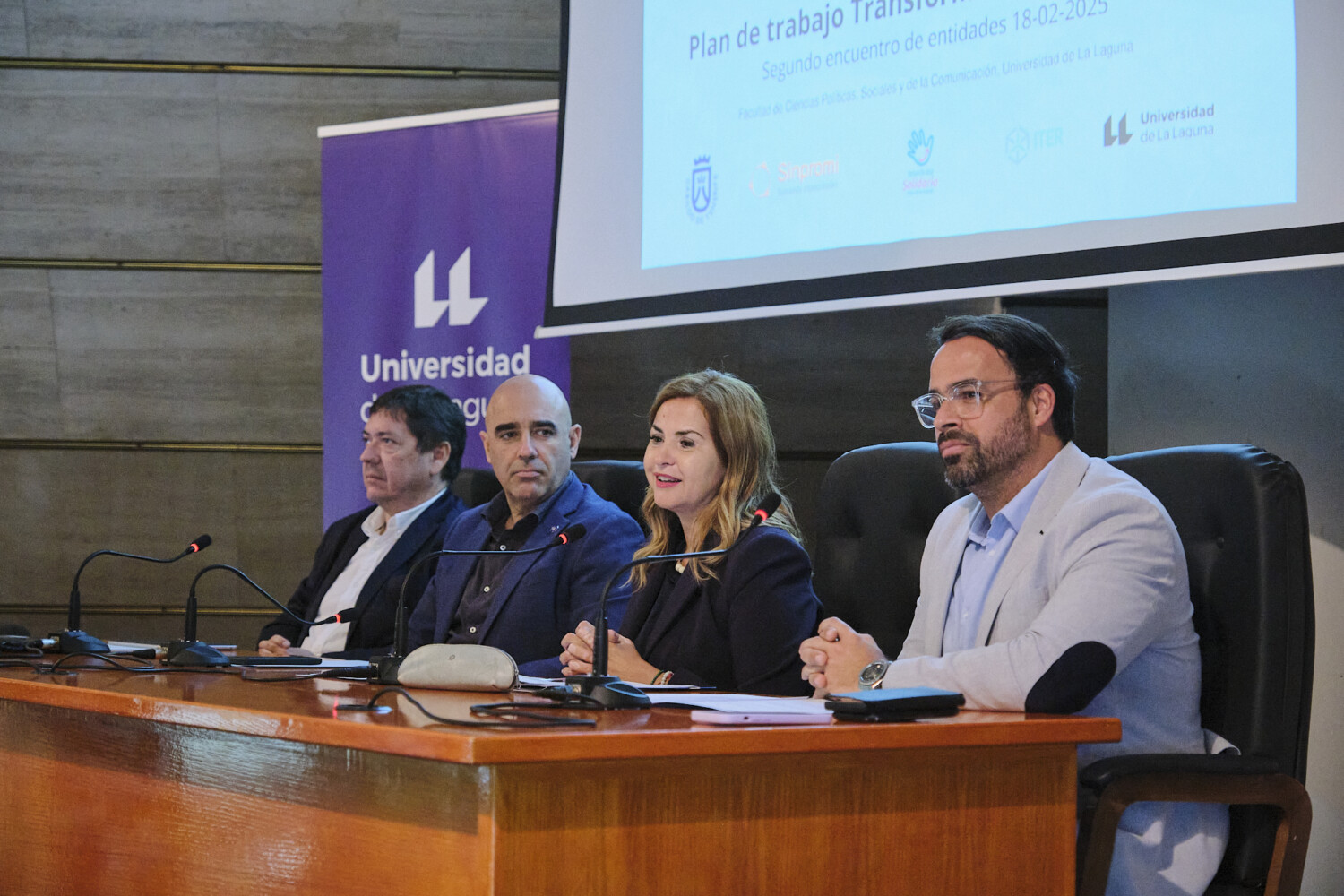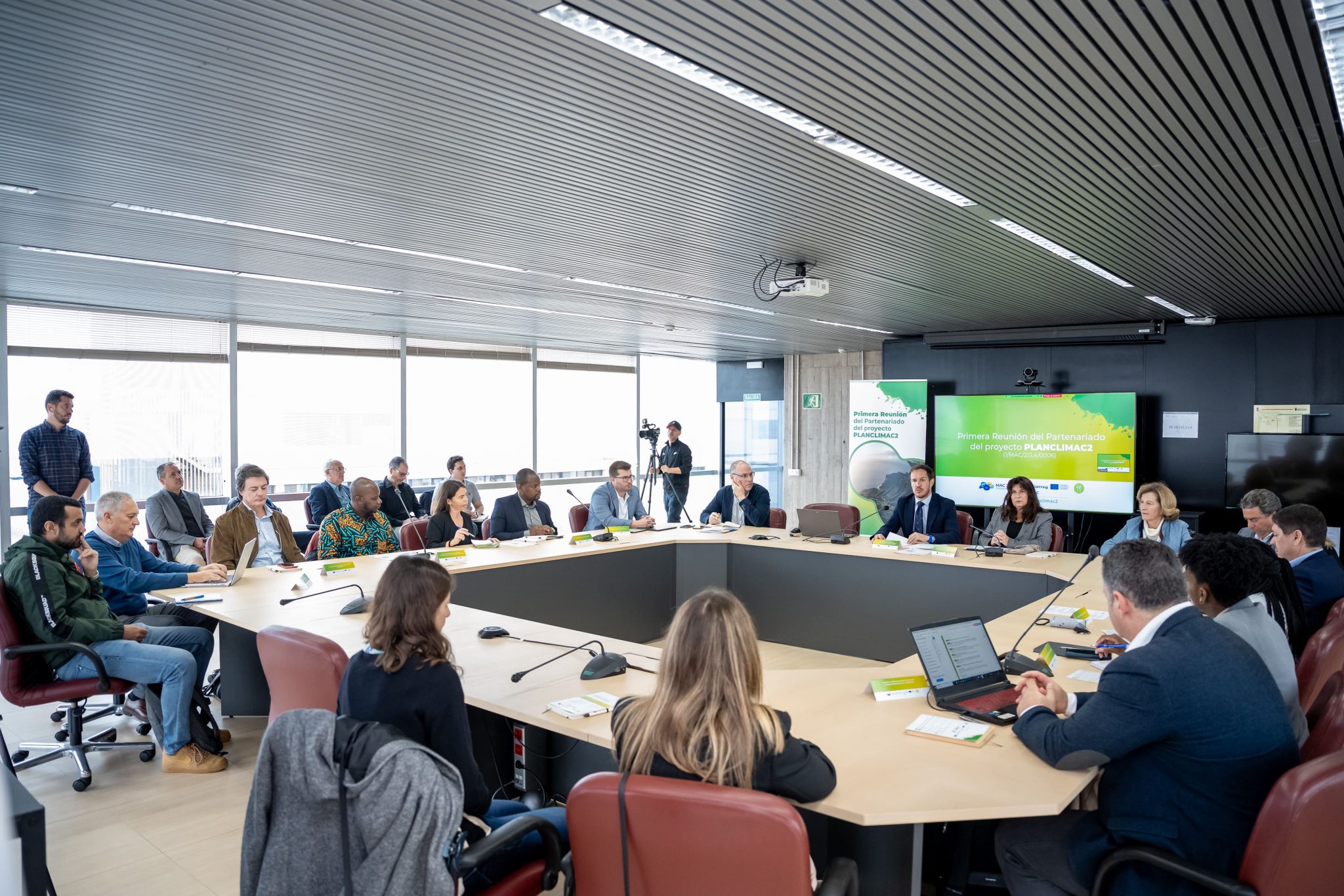The tribunal awards Adrián Muñoz Barrera, researcher of the Genomics Area of ITER, the highest qualification (Outstanding, Cum laude) for his doctoral thesis entitled“Genome assembly of multiple genomes using long-read sequencing technologies”, defended at the University of La Laguna last September 20, 2024.
As part of the PhD program in Industrial, Informatics and Environmental Engineering (I3MA) of the University of La Laguna, the defense of the doctoral thesis entitled“Genome assembly of multiple genomes using long-read sequencing technologies” of our colleague Adrián Muñoz Barrera took place in the Assembly Hall of the Institute of Natural Products and Agrobiology, IPNA-CSIC, in the modality of compendium of publications and with Industrial Mention. The thesis was developed under the direction of Dr. Carlos Flores (Director of the Genomics Area and FIISC Researcher) and Dr. José Luis Roda (Professor at the University of La Laguna). This activity has been part of the UDIGEN projects, funded by the Ministry of Science and Innovation (RTC-2017-6471-1; AEI/FEDER, EU), co-financed by FEDER funds “A way of doing Europe” of the European Union, and the Massive Genomic Data Analysis Service, funded by the Cabildo Insular de Tenerife (CGIEU0000219140).
The emergence of long-read sequencing technologies has had a substantial impact on genomic studies, facilitating the assembly of de novo genomes and the detection of structural variants in complex genomes. Accurate and complete de novo assembled genomes favor variant identification and catalyze the discovery of novel genomic features and functions and their effects on disease. However, accurate and precise de novo assemblies of large and complex genomes, such as the human genome, remain a task of enormous complexity. Long-read sequencing data alone or in hybrid mode (combined with more accurate short-read sequences) facilitate de novo assembly of genomes.
The main objective of this PhD thesis has been to unravel the potential of long read sequencing technologies, specifically for de novo assembly, by developing specific bioinformatics pipelinesto reconstruct various types of genomes, from small viruses (such as the simian pox virus or Mpox) to large and complex ones such as the human genome. Taken together, the results of this work highlight the transformative potential of long-read sequencing in de novo genome assembly, helping to rapidly characterize viral genomes implicated in infectious diseases, and to unravel complexities in human genomics in general, contributing from the ground up to the development of biomedical research and innovative diagnostic and therapeutic approaches.
Congratulations on this achievement, Adrian, and to the entire Genomica team!






